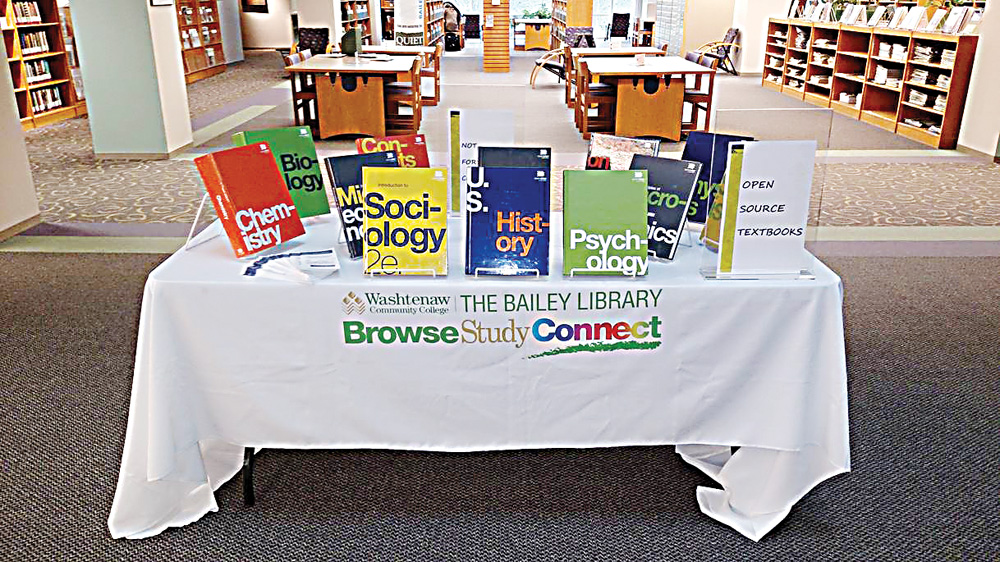
WCC faculty, staff work on alternatives to pricey texts
Affordability.
Educational leaders, business leaders and economists agree that at a time when a college education can mean the difference between a life of economic struggle and a good, well-paying job and career, higher education must remain within reach.
At Washtenaw Community College, a group of dedicated faculty and staff continues the work of making sure at least one part of the affordability equation is addressed … the staggering cost of textbooks.
Victor Liu, WCC dean of Learning Resources, said the college’s efforts began nearly two years ago and work continues to add more courses in which students can receive the same high-quality instruction without having to pay for expensive textbooks.
Open Education Resources (OER) is a movement that’s catching on across the country. It provides for free, well-vetted substitutes that cover the same classroom material found in expensive textbooks.
 OERs are written by qualified faculty and carefully checked for accuracy and completeness
and made available online, as well.
OERs are written by qualified faculty and carefully checked for accuracy and completeness
and made available online, as well.
Nearly 2,000 colleges and universities have a form of OERs, including the University of Michigan-Flint, Eastern Michigan University and several Ivy League schools.
“The quality of many OERs is by and large no longer an issue. Even the Ivies (four of the eight Ivy League schools have them) trust them,” Liu said.
And there’s research that backs up that claim. An exhaustive study of more than 16,000 students, some of whom used OERs and others who were educated using traditional paid textbooks, found that, if any-thing, students using OERs had the same or better educational outcomes in terms of course completion and course grade.
Those findings are backed up by WCC Humanities faculty members Bonnie Tew and Claire Sparklin, who have led the effort to make OERs available in their department.
In an earlier interview with On The Record, Sparklin said: “So far, the results from my students who use an open source text have been astounding. They’re learning the same things that they did from the $200 textbook but they’re not going into debt because if it.”
For community college students, having the option of not purchasing textbooks, which can average more than $70 a copy, may be the difference in attending college or not enrolling at all.
As an example, Liu pointed to a textbook he’s seen that costs more than $200 per copy. On average, students spend $1,200 a year on commercial textbooks.
More classes at WCC, such as Communication 102 and Biology 101 will be offering OERs. And expect additional textbook substitutes in the future. Four of six WCC faculty members who received sabbatical leaves in 2016-17 from the Washtenaw Community College Board of Trustees are spending their sabbatical developing additional OER courses.
“I’m proud of the work our faculty and staff have done in this vitally important area of keeping college affordable,” said WCC President Dr. Rose B. Bellanca.
The president pointed out that affordability remains one of the keys in WCC truly serving the public.
The college, she noted, froze tuition for in-county students for the upcoming academic year at last year’s rates and that student fees for the fifth year in a row will not be raised.
